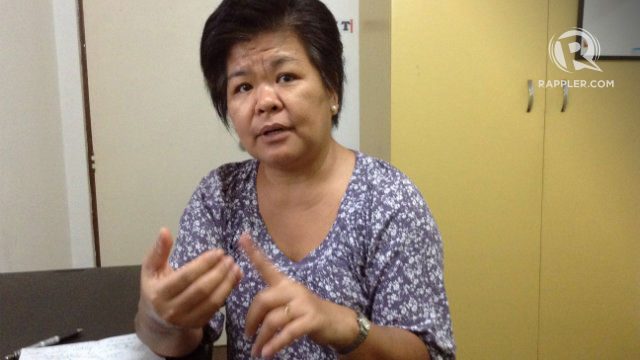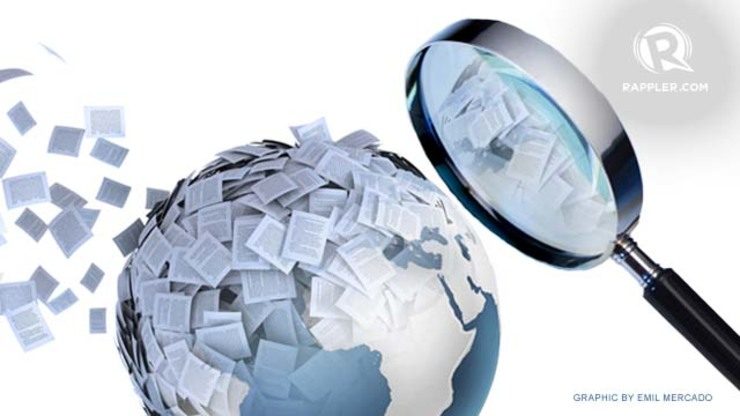SUMMARY
This is AI generated summarization, which may have errors. For context, always refer to the full article.

It was not the first time such a tragedy happened in the area. On December 24, 2011, while the Christian world was about to celebrate Christmas, two children were found dead in a mining pit near Samarinda, the capital of East Kalimantan. Since 2011, at least 11 more deaths in the mining pits have been reported.
There are reportedly at least 500 mining pits in the province. Some of these are near residential communities, schools, and paddy fields. In the past decade, mining concessions have caused water, land and air pollution, flooding, landslides and disruption to the normal lives of residents in the area.
Access to information
These issues prompted civil society organizations and residents around the mining sites to form in 2012 a movement called the Gerakan Samarinda Menggugat (GSM).
After gathering all the complaints, GSM filed a case against Samarinda authorities “for negligence and for violating existing environmental laws” in June 2013.
To support the case, the group asked the help of JATAM, a mining advocacy network, to request, under Indonesia’s Freedom of Information (FOI) Act, for environmental impact assessments (EIA) from more than 60 coal mining companies in the province.
The EIAs – which included information about the contaminants these mining companies produce and their effects in the environment – were assessed and used as evidence supporting the case.
By July 2014, after more than a year, the court ruled in favor of GSM.
Fast Facts: Freedom of information laws around the world
Freedom of information laws have been used as tools to prevent or expose abuses, improve delivery of services and even protect public health and welfare
The court ordered Samarinda authorities to revise mining policies, evaluate all coal mining permits that have been allocated, monitor reclamation and post mining efforts, make environmental improvements, and strengthen strategic efforts to protect community farming and fishing areas from contamination from coal mining activities.
FOI and the environment
The Samarinda case illustrates what having access to vital information can do.
People tend to associate the need for access to information with governance issues and corruption prevention. In countries like the Philippines, where disasters are not uncommon, access to information is also vital to protecting the environment and preventing man-made disasters, said Malu Cagay, deputy executive director of the Center for Disaster Preparedness.
“It is important (for us) to know about the state of our environment. Why? Because it’s our source of life,” Cagay said.
Cagay said there are environment-related information that people in a community should be well aware of. Most important of these are those that could put the safety and lives of people at stake.
These information, she said, includes disaster risk reduction and management plans, contingency plans, and development plans in a community, among others.

She added that the status and quality of natural and man-made resources and the threats they pose should also be readily available to the public, citing dams in Bulacan as an example.
“What people are worried about is, if these dams burst, flooding may happen immediately,” Cagay explained. “So what should they (authorities) inform the people about? Of course, the dams are old, so when can these things happen?”
She also used coastal communities as examples saying that they should be informed if they are highly at risk with respect to hazards such as flooding or storm surges.
The public, she added, have the right to know about potentially environmentally hazardous materials that private companies, particularly industrial companies, might be producing.
Cagay provided as example residents near factories who got sick not knowing why, only to find out that it was caused by harmful chemicals released by industrial companies.
“The effects of the activities and projects of companies on air and water quality should be clear to communities (in the area),” she said.
International convention
This idea of mandating public access to environmental information is not new.
In 1998, a number of European and Central Asian countries signed a convention which aimed to promote environmental protection by establishing a number of rights of the public in relation to the enviroment, including the right to:
-
gain access to any environment-related data kept by the government;
-
participate in decision-making related to the environment and;
-
review matters that are believed to neglect the use of the first two rights
Parties to what became known as the Aarhus Convention are required to make the necessary provisions so these rights become effective.
As of 2014, the Aarhus convention has been ratified by 47 countries. Most of these are European countries.
Indonesia, one of only two countries in Southeast Asia that has actually enacted a Freedom of Information law, does not have specific provisions in its law requiring access to environmental information. It is also not a signatory of the Aarhus Convention.
The Indonesian FOI law, however, provides punishments for those who fail to release information on public safety matters in a timely manner.
Closer to home, the proposed Freedom of Information law in the Philippines has remained pending in Congress for 27 years now.
The Senate approved it on third reading early this year. At the House of Representative, the committee in charge has yet to report on the bill despite its inclusion in the list of the measures the President wants prioritized.
While the Code of Ethics of Government Officials makes it the obligation of public officials and employees to make documents accessible to the public, journalists have found time and again that requests for information may either be selectively released or refused without any clear grounds.
Using information to move, act
Of course, while access to information can help keep people aware of the imminent dangers and threats to their lives, it’s not enough that people know.
Being informed is actually just the first step as it encourages people to think, move and act, Cagay said.
“If you know that this scenario can happen, what are you going to do? What solutions do you see?” Cagay said each person needs to do his part.
This can only happen, however, if the public has access to information needed to make informed decisions, she adds.
Knowing is a prerequisite for people to contribute to the solution of a problem, Cagay explained. It is a must, she said, that people are included in the problem-solving process. (READ: San Francisco, the island where all survived)
“Sometimes, the reason why people do not obey is because they are not consulted during the decision-making process. Even if a person is poor, he still has something to contribute.” – Rappler.com
 The research used in this article was supported by the Friedrich Naumann Foundation for Freedom. The research used in this article was supported by the Friedrich Naumann Foundation for Freedom. |
Green hedge with keyhole image via ShutterStock
Add a comment
How does this make you feel?


There are no comments yet. Add your comment to start the conversation.